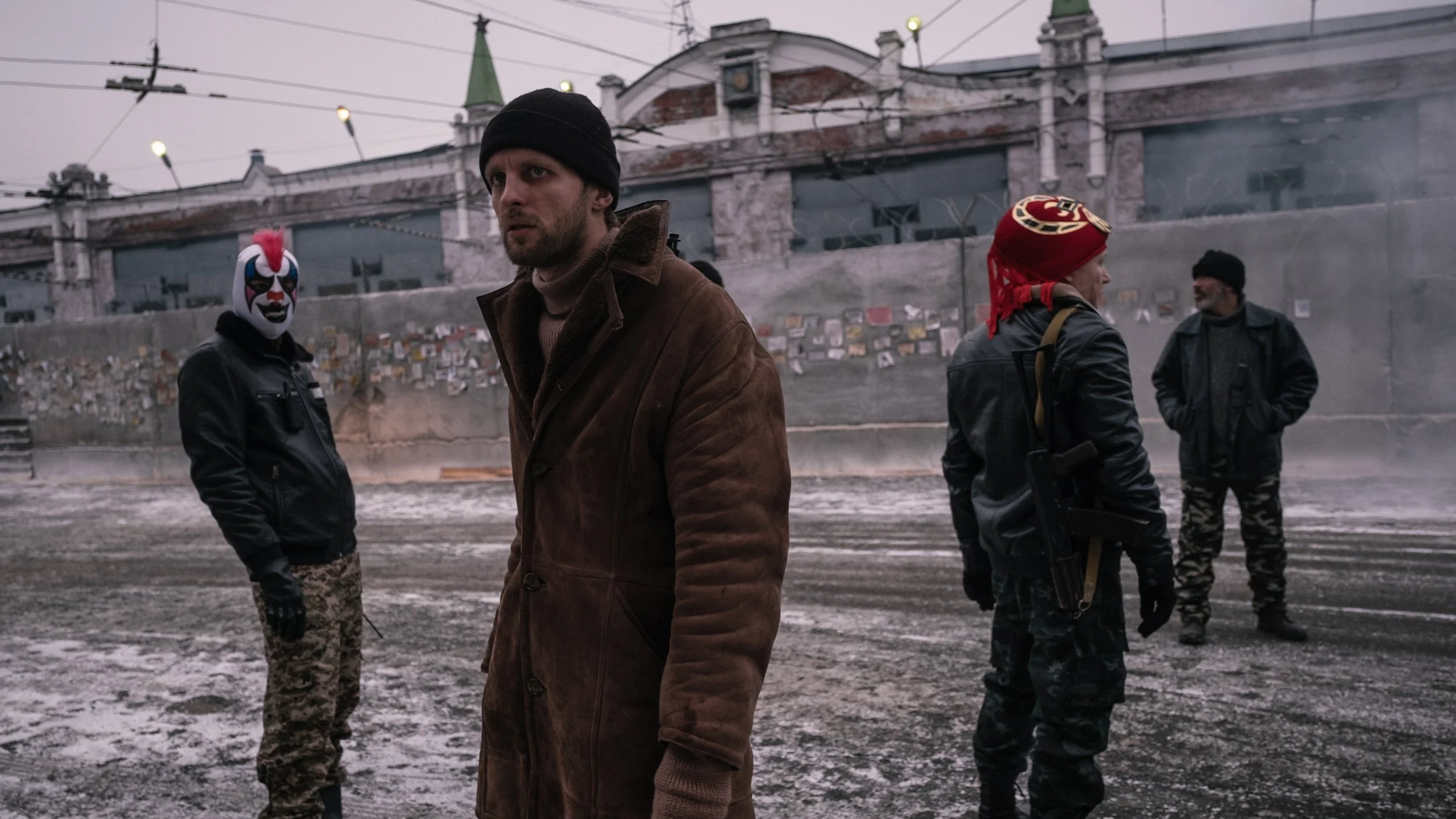Petrov's Flu
With his ninth feature, Russia’s maverick Kirill Serebrennikov proves himself a force to be reckoned with.
The number of films from Russia that we get to see in the West is limited, so it is quite an achievement for Kirill Serebrennikov that of his nine features to date as many as three have reached the UK. Petrov’s Flu is the latest and, while it is based on the novel by Alexey Salnikov which won acclaim in 2018, it's a work which seems highly personal to Serebrennikov, a man frequently in trouble with the authorities. Set in post-Soviet Russia, it takes place during one New Year's Eve and, although that could be some years back, the criticisms voiced in it regarding Russian society and its leaders proves that Serebrennikov is not a man ready to play things down.
Petrov (Semyon Serzin, well cast) is a comic book artist who also works as a mechanic and, although he is divorced, his wife (Chulpan Khamatova, equally effective) and their young son (Vladimir Semiletkov) are the other central figures here. All three go down with flu, but in this feverish film made before Covid-19 appeared the epidemic is present for two reasons: first, it's a metaphor for the sickness of society and, secondly, it gives Serebrennikov the opportunity (of which he takes almost more than full advantage) to incorporate into the narrative nightmares and fantasies which could be seen as the hallucinations experienced by the characters due to their illness. These episodes extend to flashback scenes (some screened in a tighter ratio) but almost anything goes here. The social criticism is more than Kafkaesque: sometimes there’s a dark humour present, yet it’s rarely designed to encourage actual laughter; there is pure surrealism at times as in scenes featuring a pair of singing dentures; there is a bizarre horror thread when Petrov’s wife, a librarian, turns to violence. On the occasions when that happens, we see her eyes go black (indeed at times she becomes a vampire-like avenger hitting on evil men, but she also cuts the throat of her child in a sequence expressive of her own imaginings). Elsewhere nudity is provocatively inserted and so too is a gay kiss.
The mix is as weird as it sounds and Serebrennikov relentlessly pursues his version for 146 minutes. It says much for his forceful cinematic skill that he keeps the film moving so well for so long. One is sometimes bemused but never bored, although that’s a statement that ceases to apply once Serebrennikov finds a way of extending his film by inserting a long flashback sequence. Unlike the rest of the film it is shot in black and white and takes up close on half an hour in the work’s final quarter. Since it largely takes place at an earlier time and feels divorced from what precedes it, it seems like a seriously wrong move especially since it arrives just when the main narrative and thus the film itself appears to be winding to a close. True, the section does eventually link in an unexpected way with the events of Petrov’s day, but it nevertheless brings to the surface one's doubts about this strange work. That said, Petrov’s Flu is impassioned and well-acted. If it's self-indulgent, it is also potent. Serebrennikov may come across as a filmmaker lacking in control and judgment, but nonetheless he is unquestionably an artist.
Original title: Petrovy v grippe.
MANSEL STIMPSON
Cast: Semyon Serzin, Chulpan Khamatova, Yulia Presild, Vladislav Semiletkov, Yuri Kolokolnikov, Alexandr Ilin, Yuriy Borisov, Olga Voronina, Semyon Shteynberg, Timofey Tribuntsev, Georgiy Kudrenko, Ivan Dorn, Sergey Dreyden, Aleksandra Revenko, Ivan Ivashkin.
Dir Kirill Serebrennikov, Pro Ilya Stewart, Murad Osmann and Pavel Burya, Screenplay Kirill Serebrennikov based on the novel Petrovy v Grippe by Aleksey Salnikov, Ph Vladislav Opelyants, Pro Des Vladislav Ogay, Ed Yuriy Karih, Music Aidar Salakov, Dmitriy Zhuk and Andrey Polyakov, Costumes Tatyana Dolmatovskaya.
Hype Film/Logical Pictures/Bord Cadre Films/Charades/Arte France Cinéma-Sovereign Film Distribution.
146 mins. Russia/France/Germany/Switzerland/UK. 2021. UK Rel: 11 February 2022. Cert. 18.


